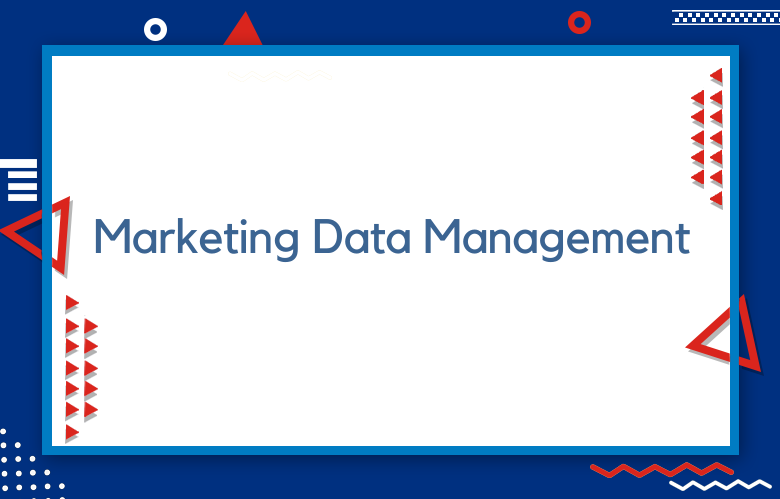Big Data in Marketing: How Can Big Data Simplify Marketing Data Management Processes

As a marketer, you know that data is critical to your success. However, managing all data can be daunting, especially when it comes time to report on it. Fortunately, big data can help simplify the process.
Using big data tools and technologies, you can easily manage and analyze your marketing data in one place.
So, if you need a way to simplify your data management process, big data is the solution you’ve been searching for.
If you’re involved in marketing, you’re likely generating data. This data can come from various sources, including website traffic, CRM entries, social media interactions, etc.
And while all this data is essential, it can also be challenging to manage.
Fortunately, big data solutions can make this process much more manageable. We’ll explore how big data can simplify marketing data management and help you better understand your customers.
Big Data in Marketing
The rise of Big Data has revolutionized the field of marketing. By analyzing massive data sets, businesses can now gain insights into consumer behavior that were previously unavailable.
This has led to a more targeted marketing approach and a greater understanding of consumers’ wants and needs.
Data is becoming increasingly important in marketing.
Many experts believe that data will soon become the most critical aspect of marketing.
As such, businesses must have a solid big data strategy.
Big data refers to many data companies now have access to. This data can come from various sources, including social media, website interactions, and mobile apps.
By understanding this data, businesses can gain insights into their customers and target them more effectively.
While big data can benefit businesses, it also has its challenges. One of the biggest challenges is simply understanding and using all this data effectively.
Knowing where to start with so much data available can be challenging.
Marketers are increasingly turning to big data to help them make better decisions about their marketing campaigns.
Big data analytics can provide a deep understanding of customer behavior, which helps marketers fine-tune their campaigns for maximum effect.
In today’s increasingly competitive marketplace, big data is a crucial tool to give businesses the edge to succeed.
How Can Big Data Simplify Marketing Data Management Processes
Big data can be a big help in simplifying marketing data management processes. By collecting and analyzing large amounts of data, businesses can identify trends and patterns that would otherwise be incredibly difficult to discern. These insights can then be used to make more informed decisions about marketing strategies and campaigns. In other words, big data can make marketing data management much more accessible.
Data management can be a complex and time-consuming process for businesses. Big data can help simplify this process by providing a single source of information that can be easily accessed and analyzed. This can help companies make more informed decisions about their marketing strategies and effectively allocate resources.
- Big data can simplify marketing data management processes by
- reducing the data to be manually sorted and analyzed.
- Businesses can focus on more critical tasks,
- like developing marketing strategies and understanding consumer behavior.
- Additionally, big data can provide insights that would be difficult to glean from smaller data sets.
Big data can simplify marketing data management processes by providing insights that can help streamline workflows.
Businesses can make more informed decisions about their marketing strategies by analyzing current trends and customer behavior.
Additionally, big data can help identify opportunities for improvement and areas where further investment may be warranted.
Many marketers ask, “How can big data simplify marketing data management processes?”
Big data can help streamline and automate many tedious tasks of managing marketing data.
By harnessing the power of big data, marketers can spend more time focusing on creative tasks that can drive better results for their business.
Big data can simplify marketing management processes by providing a consolidated view of customer data.
This can help marketing teams identify trends and patterns more efficiently and allocate resources.
In addition, big data can help automate some of the tasks associated with data management, freeing up time for more strategic activities.
Big Data Marketing Strategies for Data Management Processes
Are you looking for different ways to improve your big data marketing strategies? Data management can be a challenge, but it can be easier with the proper process.
Here are essential tips to help you get started:
- Define your goals and objectives. What do you want to achieve with your data?
- Choose suitable data sources. Many options are available, so select the best ones to meet your needs.
- Implement a plan for data collection and analysis.
- Keep your data clean and organized. Properly managing your data will save you time and
Big Data marketing is essential for businesses today. By definition, it analyzes large data sets to identify patterns and trends.
Big Data marketing is a relatively new field that has significantly impacted businesses worldwide.
There are many approaches to Big Data marketing, but one of the most important is ensuring that data is managed correctly. This includes understanding how to collect and clean data and turn it into valuable insights.
Don’t let big data overwhelm your marketing efforts. Follow these strategies for better data management processes.
Understanding and utilizing big data can set your business apart from the competition.
Data is becoming increasingly important in the world of marketing. To keep up with the competition and make the most of your marketing budget, it’s essential to understand how to maximize your use of big data. These strategies will help you get started on the path to success:
If you’re unsure where to start with big data, these marketing strategies can help. Implementing these data management processes will put you ahead of the competition.
Big data is defined as substantial data sets that may be too complex for traditional data-processing application software to handle adequately. However, big data can feed marketing research, identify new customers, and predict consumer behavior.
This involves collecting data from various sources, analyzing it, and then using it to improve your marketing strategy.
The ever-growing world of big data can be highly overwhelming for businesses. However, big data can be used with the right marketing strategy. To get started, consider these tips for effectively managing your data.
Map out your data. Sit down and map out where your company’s data is coming from. This will help you understand everything and better understand what needs to be done with it.
Filter your data. Once you know where your data comes from, you can filter it based on what is essential to your business. This will help you cull the useless information and use valuable data better.
Data is the lifeblood of any organization in the 21st century. An organization’s ability to make sense of its data and put it to use is critical to success. Extensive data marketing is all about collecting and managing data effectively.
There are a few key strategies that every organization should consider when it comes to extensive data marketing:
Focus on quality over quantity. It’s better to have a small amount of high-quality data than a large amount of low-quality data.
Make sure you have the right technology to manage your data effectively.
Put together a team of experts who can help you make sense of your data and put it to use.
Data is becoming increasingly important in marketing. Understanding big data marketing strategies is crucial for success. By utilizing data management processes, businesses can gain a competitive advantage.
To effectively utilize big data marketing strategies, it is essential to understand how data can be used to your advantage. Data management processes are vital in ensuring that you can make the most of your data. You can gain a competitive advantage over other businesses by utilizing these processes.
Understanding big data marketing strategies is essential for any business looking to stay ahead of the competition.
Data is becoming increasingly critical to marketing success. As data volumes continue to grow, it’s essential to have efficient and effective data management processes in place. Big data marketing strategies can help you to accomplish this.
Understanding and utilizing big data marketing strategies can give you a competitive advantage in today’s marketplace. Data management tools and techniques can also help you optimize your marketing efforts and achieve better results.
- Use data to make more informed decisions.
- Update your marketing strategy to reflect the latest customer behavior and preferences trends.
- Create a social media content calendar that aligns with your business goals.
- Ensure you have an analytics tool to help you get insights into how customers interact with your website, advertisements, and blog posts.
- Understand the data and its context.
- Identify the end goal of the data to be collected.
- Determine which metrics are essential for that goal and what type of analysis needs to happen on them (descriptive, predictive, causal)
- Design a system that efficiently collects these metrics with minimal human intervention for troubleshooting or monitoring.
- Implement this system by training employees on how it works
- Define the data management process
- Determine how much data is being generated and what type of data it is
- Analyze current strategies to see if they can handle the amount of data that needs to be stored, managed, and analyzed
- Different Research types of storage systems for large volumes of high-quality data
- Develop a plan on how you will keep your information (i.e., cloud storage)
- Map your data management process to identify critical points of contact
- Define the data you want to track and how you will use it
- Create a plan for what happens when things go wrong with your data (e.g., lost or stolen)
- Identify all parties involved in the process and their roles/responsibilities
- Understand the data you want to collect
- Define your strategy for collecting and storing data
- Know what type of data is available in your company and know how to use it
- Use a system that can analyze the information efficiently
- Utilize Google Analytics to monitor your website traffic
- Create a customer database and manage it effectively
- Track the effectiveness of marketing campaigns with analytics tools
- Use data-driven attribution modeling to optimize campaign performance
- Analyze big data on customer behavior, demographics, and preferences
- Identify and set up the necessary data management processes
- Determine what type of data is needed for a project
- Create an inventory of all existing data sources
- How to collect new data types, including potential obstacles and solutions.
- Set up a process to ensure that all team members collect the correct information in the appropriate format.
Conclusion
The right tools and processes are essential to ensure your marketing data is accurately collected, cleansed, standardized, and analyzed.
The good news is that some companies specialize in big data consulting and can help you get your marketing data under control.
Contact us today for more information about our extensive data marketing services, or schedule a consultation.
Call: +91 9848321284
Email: [email protected]



